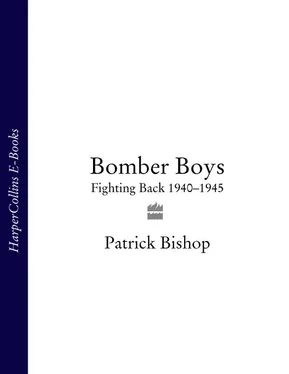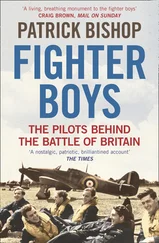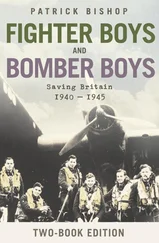The note of the all-clear siren had barely faded before calls for retribution began. When King George visited the city less than two days afterwards a man in the crowd called out to him: ‘God bless you. Give them what they gave to us! We can take it.’ 14The intelligence reports reaching the city’s emergency services during the raids that preceded the big attack suggested that people had thought bombing attacks would be worse than they in fact were. As a result, ‘more people than hitherto now feel that indiscriminate bombing of Berlin would be an unwise policy.’ 15
That attitude had now changed. Hilde Marchant had been one of the first to report the calls for revenge. She had issued one of her own. ‘The Nazis added one more word to the English language – “Coventrated”,’ she wrote. ‘Let us add one more – “Berliminated”.’ Her observations had been contradicted by Harrisson in a throw-away remark at the end of his broadcast. ‘I see some reporters stressing the fact that Coventry is clamouring for reprisals,’ he said. ‘That wasn’t borne out by my own observations … it only makes Coventry realize that this sort of thing doesn’t end the war and only makes it more bitter.’
This judgement was not supported by the findings of his own teams. A fortnight after the raid they asked people in the streets of the city what they would like the government to do. ‘Knock bloody hell out of them,’ said a forty-five-year old man, described as middle class. ‘For every one he gives us, we ought to give him twenty,’ said a sixty-year-old working-class male. Another, youngish man replied. ‘We’re fighting gangsters, so we’ve got to be gangsters ourselves. We’ve been gentlemen too long.’ 16
Whatever gentlemanly attitudes lingered among those making Britain’s war decisions were about to disappear for the duration of the war. It was a month before the government moved to avenge Coventry. The attack took place on the night of the 16/17 December and the target was Mannheim, an industrial town that straddles the Rhine in south central Germany. There were 134 aircraft on the raid, the biggest force to be used so far. At first sight there is nothing in the operations book or subsequent intelligence reports to suggest that the purpose of the raid was any different to many that had preceded it. The order was to attack the industrial centre of the town and the primary targets were the Mannheim Motorenwerke and naval armaments factories. The clue to the special nature of the raid lay in the bombs that the aircraft were carrying. There were a few 1,000-pound bombs and many more 500- and 250-pounders, packed with high explosive and designed to knock down walls and collapse roofs. But by far the largest number of bombs were incendiaries, weighing only four pounds each but capable when dropped in sufficient numbers, as Coventry knew all too well, of setting a city ablaze.
The raid was led by eight Wellingtons which carried nothing but incendiaries in their bomb bays, flown by the most experienced crews available. The aircraft that followed them were to use the light of the fires they started as their aiming point and in the words of Sir Richard Peirse, who succeeded Portal as commander-in-chief of Bomber Command, ‘to concentrate the maximum amount of damage in the centre of the town.’ It was a perfect moonlit night over Mannheim and the returning crews thought they had done well. More than half the aircraft claimed to have hit the town. Some reported later that when they flew away at 3.30 a.m., the target area was a ‘mass of fires’.
In fact the raid was only a partial success. The first Wellington ‘fire-raisers’ failed to accurately identify the centre of the city and many incendiaries fell in the suburbs which were then bombed by the following aircraft. Other bombs fell on Ludwigshafen on the western bank of the Rhine. The city authorities reported 240 buildings destroyed or damaged by incendiaries and 236 by high explosive. They included thirteen shops, a railway station, a railway office, one school and two hospitals. The total casualty list was thirty-four dead, eighty-one injured and 1,266 bombed out of their homes. Of the dead eighteen were women, two were children, thirteen were male civilians and one was a soldier.
The Cabinet had given their approval for the plan three days before. If they had hoped for destruction to match that done to Coventry the reconnaissance photographs told another story. It was a disappointment and the exercise was not repeated for some time. But it was the shape of things to come.
Bomber Command was poorly equipped to face the challenges of this new and vulnerable phase of its existence. In one respect, though, it was extraordinarily rich. The quality and quantity of men available to it were the best Britain and its overseas Dominions could provide. The Bomber Boys were all volunteers and the supply of aircrew candidates never slackened, even when losses were at their most daunting.
They were an extraordinarily varied bunch. Most were British. There was a sprinkling from the diaspora of the defeated nations, Poles, Czechs, Norwegians, French and Belgians, wanting their revenge on Germany. They were outnumbered by large numbers of Canadians, Australians, New Zealanders and South Africans, the ‘colonials’ as they were mockingly but affectionately called, whose lands were not directly threatened by Nazism but who, driven by a sense of adventure or fellow-feeling for their British cousins, nonetheless offered themselves for what it was soon understood were among the most dangerous jobs in warfare.
For imaginative boys growing up in the 1930s, the prospect of going to war in an aeroplane carried an appeal that the older services could never match. Aviation was only a generation old and flying glowed with glamour and modernity. In the years before the war Peter Johnson, languishing in a hated job as a breakfast-cereal salesman, looked at this world and longed to join it. ‘I read aviation magazines,’ he wrote, ‘watched the activities at an RAF aerodrome from behind a hedge and even once penetrated into a flying club on the pretext of finding out the cost of learning to fly. That, needless to say, was well out of my income bracket but the contact with the world of flight, the romantic instructors in their ex-RFC leather coats, the hard, pretty girls with their long cigarette holders, the rich young men boasting about their adventures, fitted perfectly with my picture of a dream world to which, if I joined the Air Force, I could find a key.’ 1
By the time the great wartime expansion began, the RAF’s aura of chic had faded. There was little that was dashing about Bomber Command. The new aircraft were big, blunt and utilitarian and the men who flew in them were unmistakably sons of the modern age.
The pre-war professionals were, on the whole, skilled and conscientious fliers, but they masked their seriousness behind a show of pseudo-aristocratic insouciance. The new boys were much less sophisticated. They came from all backgrounds and classes, and the prevailing ethos was democratic and popular. In their writings, in their work and play, they seem sterner, more earnest and more grown-up. The white flying-suited paladins of the RAF of the 1920s and early 1930s had joined to fly rather than to fight. The newcomers had signed up to do both.
On the outbreak of war, young men flocked to join the air force. In the initial rush, the recruiting staff were sometimes overwhelmed. Edward Johnson, who went on to fly as a bomb-aimer on the Dams Raid, was working for J. Lyons, the bakers, in Leeds when war broke out. ‘I tried very hard to join up but in the initial stages they kept sending me back because they had nowhere to send people that were volunteering … it was a case of calling regularly to see if they’d made up their minds they were going to let us join.’ 2
Читать дальше












